Middle East
Children among several killed in Israel’s attacks on Gaza amid aid blockade | Israel-Palestine conflict News
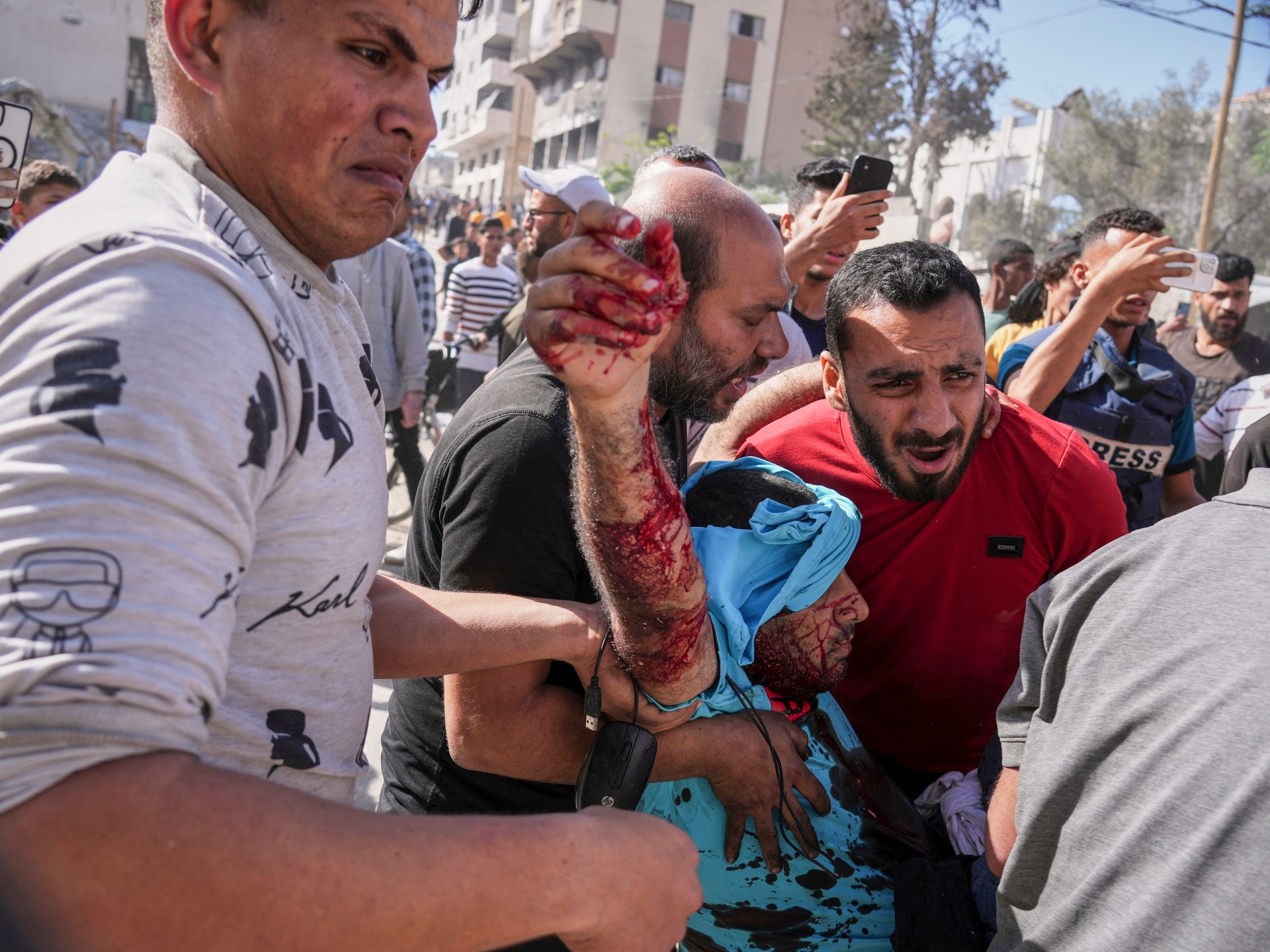
Seven people, including three children, have been killed in Israeli attacks on the Gaza Strip amid a months-long Israeli blockade that has deepened the humanitarian crisis in the war-torn coastal enclave.
Palestinian news agency Wafa said Israeli warplanes bombed a tent in the Sabra neighbourhood of Gaza City on Saturday morning, killing five members of the Tlaib family.
“Three children, their mother and her husband were sleeping inside a tent and were bombed by an [Israeli] occupation aircraft,” family member Omar Abu al-Kass told the AFP news agency.
The strikes came “without warning and without having done anything wrong”, added Abu al-Kass, who said he was the children’s maternal grandfather.
In parallel, a drone attack on Gaza City’s Tuffah neighbourhood left one person dead.
Further south, Wafa said Israeli gunboats opened “heavy fire” on the shores of Rafah, killing a man identified as Mohammed Saeed al-Bardawil. Two more civilians were injured in an attack on the al-Mawasi humanitarian zone, west of Rafah.
In the past 24 hours, at least 23 Palestinians have been killed and 124 others injured in Israeli attacks across the Gaza Strip, according to the enclave’s Health Ministry.
Israeli blockade
The attacks came amid Israel’s continuing refusal to allow vital supplies into Gaza since March 2, leaving the enclave’s 2.3 million residents dependent on a dwindling number of charity kitchens, which have been shutting down in recent days as food runs out.
Reporting from Deir el-Balah in central Gaza, Al Jazeera’s Hind Khoudary said: “There’s barely food … We’re talking about bakeries not operating, we’re talking about zero distribution points and we’re talking about only a few hot meal kitchens still operating.”
Khoudary said people queueing for hours would often leave empty-handed, with remaining kitchens stretching out food that would previously have fed 100 to serve up to 2,000 people.
“We’re seeing more people dying, we’re seeing more children dying due to malnutrition and the lack of food. But it’s not only the lack of food, it’s also the lack of medical supplies, it’s the lack of fuel, cooking gas and it’s the lack of everything,” she said.
Among the charities shuttering operations, the United States-based World Central Kitchen said on Wednesday that it had been forced to close down because it no longer had supplies to bake bread or cook meals.
The United Nations’ Office for the Coordination of Humanitarian Affairs appealed for the blockade to be lifted.
“Children are starving, and dying. Community kitchens are shutting down. Clean water is running out,” it said on Friday in a post on X.
‘Failure of humanity’
The blockade is also having a devastating effect on people with chronic illnesses, depriving Palestinians who suffer from diabetes, cancer and rare conditions, of life-saving medication.
Reporting from Gaza City, Al Jazeera’s Hani Mahmoud said: “Doctors here say the tragedy is not in what’s happening, but in what is preventable.”
“These diseases have a treatment, but people of Gaza no longer have access to them, and they say that this is not just a failure of logistics, but of humanity,” he added.
Mahmoud spoke to the father of a 10-year-old boy suffering from diabetes, who said insulin was not available across northern Gaza.
“I spend entire days searching pharmacies, hoping to find it. Sometimes we hear that individuals might have it, so I go to their homes to barter,” he said.
Said al-Soudy, head of emergency in the oncology department of Gaza City’s Al Helou International Hospital, told Al Jazeera: “A large part of patients are struggling to find their essential medications. Without them, their health conditions deteriorate and may become life-threatening.”
Pharmacist Rana Alsamak told Al Jazeera that Palestinians were unable to obtain medication for “multiple sclerosis, rheumatoid arthritis, hepatitis, chronic illnesses and … immune-related diseases”.
“These conditions now go largely untreated,” she said.
On Friday, the United States said it was establishing the Gaza Humanitarian Foundation to coordinate aid deliveries into Gaza, with Israel providing military security for operations. The United Nations rejected the move, saying it would weaponise aid, violate principles of neutrality and cause mass displacement.
Middle East
Israel capitalises as Gaza fatigue sets in | TV Shows
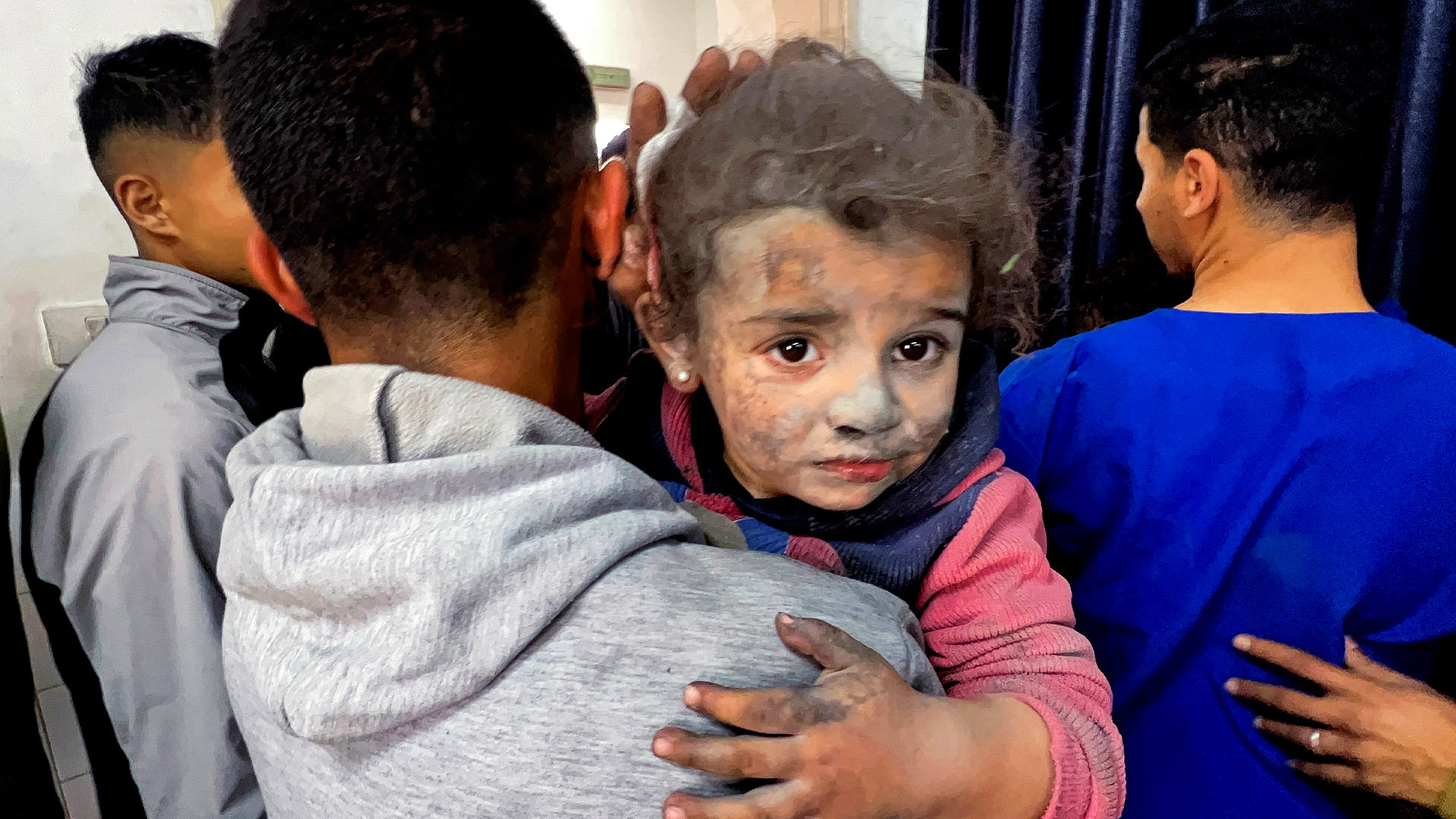
One might think that images of starving children, as political leaders withhold aid and openly call for ethnic cleansing, would be topping news agendas everywhere. In the case of Gaza, the failure of many in the international media to meet the moment has made them part of the story.
Lead contributors:
Chris Doyle – Director, Council for Arab-British Understanding
Daniel Levy – President, US/Middle East Project
Muhammad Shehada – Visiting fellow, ECFR
Sarah Leah Whitson – Director, DAWN
On our radar:
As India and Pakistan go toe-to-toe in their most intense fighting for decades, a flood of disinformation is fuelling the sense of panic on both sides. Meenakshi Ravi reports.
Seeking justice on Ghana’s courtroom shows
If you are dealing with something personal and painful – a broken marriage or a family dispute – you might turn to a friend. For something as serious as sexual assault, it might go to trial. But in Ghana, more and more people are turning somewhere else: live radio. The so-called “justice-style” shows promise swift, public resolutions. But they are also controversial, with critics accusing them of turning private pain into primetime theatre.
Featuring:
George Sarpong – Executive secretary, National Media Commission
Menenaba – Ghanaian writer
Oheneni Adazoa – Host, Sompa Nkomo Show
Zakaria Tanko Musah – Lecturer in media law and ethics, Journalism Institute
Middle East
At least 33 people killed in suspected RSF attacks in Sudan | Sudan war News
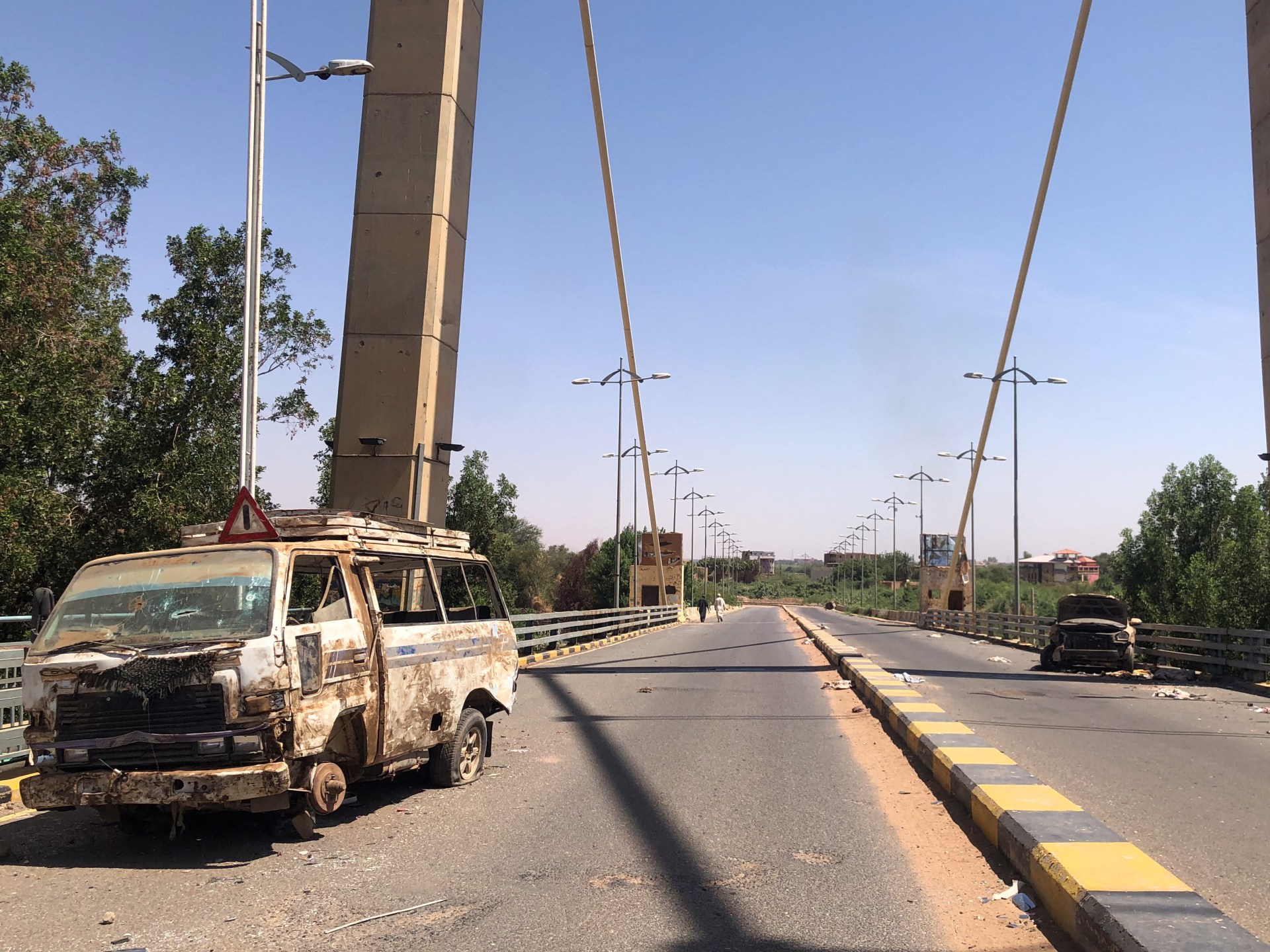
The paramilitary force has been blamed for attacks on a prison in el-Obeid and a displacement camp in Darfur.
At least 33 people have been killed in Sudan in attacks suspected to have been carried out by the paramilitary Rapid Support Forces (RSF) as the brutal two-year war claims its latest victims.
An RSF strike on a prison on Saturday in el-Obeid killed at least 19 people, while on Friday evening, at least 14 members of the same family were killed in an air attack in Darfur, local sources said.
The attacks – part of the RSF’s ongoing war with the military-led government’s Sudanese Armed Forces (SAF) since 2023 – came after six straight days of the paramilitary group’s drone attacks on the army-led government’s wartime capital of Port Sudan.
These attacks damaged key infrastructure, including a power grid and the country’s last operational civilian airport, which was a key gateway for aid into the war-ravaged nation.
The war has left tens of thousands dead, displaced 13 million people and triggered what the United Nations calls the world’s worst humanitarian crisis.
The attack on the prison on Saturday also wounded 45 people, a medical source told the AFP news agency. The source said the jail in the army-controlled city in the North Kordofan state capital was hit by an RSF drone.
The night before, 14 people were killed at the Abu Shouk displacement camp near el-Fasher in Darfur, a rescue group said, blaming the paramilitary.
The camp “was the target of intense bombardment by the Rapid Support Forces on Friday evening”, said the group of volunteer aid workers.
The camp near el-Fasher, the last state capital in Darfur still out of the RSF’s control, is plagued by famine, according to the UN.
It is home to tens of thousands of people who fled the violence of successive conflicts in Darfur and the conflict that has been ripping Africa’s third-largest country asunder since 2023.
The RSF has shelled the camp several times in recent weeks.
Abu Shouk is located near the Zamzam camp, which the RSF seized in April after a devastating offensive that virtually emptied it.
RSF escalation
Elsewhere on Saturday, SAF warplanes struck RSF positions in the Darfur cities of Nyala and el-Geneina, destroying arms depots and military equipment, a military source told AFP.
The RSF has recently said it had taken the strategic town of al-Nahud in West Kordofan, a key army supply line to Darfur.
The RSF’s escalation in Port Sudan earlier this month came after the military struck the Nyala airport in South Darfur, where the RSF receives foreign military assistance, including drones. Local media stated that dozens of RSF officers were killed in the attack.
Sudan’s army-aligned authorities accuse the United Arab Emirates of supplying those drones to the RSF, which has no air force of its own.
The war began as a power struggle between SAF chief Abdel Fattah al-Burhan and his former deputy, RSF commander Mohamed Hamdan Dagalo. It has effectively divided the country into two, with the army controlling the north, east and centre, while the RSF and its allies dominate nearly all of Darfur in the west and parts of the south.
Both sides have been accused of committing war crimes.
Middle East
Iran’s FM visits Saudi Arabia, Qatar before nuclear talks with US in Oman | Politics News

The Iranian Ministry of Foreign Affairs has confirmed there will be a technical delegation at the Iran-US talks in Oman on Sunday.
Iran’s Foreign Minister Abbas Araghchi has visited Saudi Arabia and is due to visit Qatar for consultations in the run-up to the fourth round of indirect nuclear talks with the United States, which will take place in Oman on Sunday.
The future direction of Iran’s nuclear programme, its enrichment of uranium, and sanctions relief remain the key issues.
Araqhchi’s Gulf tour on Saturday comes after Tehran confirmed the latest round Friday: “The negotiations are moving forward, and naturally, the further we go, the more consultations and reviews are needed,” Araghchi said in remarks carried by Iranian state media.
Omani Foreign Minister Sayyid Badr Albusaidi said on Friday that, after “coordination with both Iran and the US”, the delayed talks would go ahead in Muscat. The fourth round, initially scheduled for May 3 in Rome, was postponed for what Oman described as “logistical reasons.”
A source familiar with the matter said on Friday that US President Donald Trump’s special envoy, Steve Witkoff, plans to attend the meeting in Oman.
Ongoing dispute over nuclear programme
The talks come against the backdrop of a long-running dispute over Iran’s nuclear ambitions. The meeting is the latest effort to revive diplomacy after years of rising tensions.
Successive US administrations have sought to prevent Iran from acquiring a nuclear weapon. A sustained effort by world powers during the Barack Obama administration culminated with a 2015 agreement called the Joint Comprehensive Plan of Action (JCPOA).
The multilateral agreement created a framework for Iran to receive much-needed relief from international sanctions, in exchange for reducing its uranium enrichment and submitting to inspections of its nuclear facilities.
But when Trump succeeded Obama as US president, he unilaterally withdrew the US from the nuclear agreement in 2018, causing the deal to crumble.
Some Western countries argue that Iran’s programme, accelerated after the US walkout from the 2015 accord, is aimed at developing weapons. Tehran maintains that its nuclear activity is entirely civilian.
Trump himself has acknowledged tensions in his policy on Iran, saying at the start of his second term that hawkish advisors were pushing him to step up pressure reluctantly.
In an interview on Thursday, Trump said he wanted “total verification” that Iran’s contested nuclear work is shut down, but through diplomacy.
“I’d much rather make a deal” than see military action, Trump told the conservative radio talk show host Hugh Hewitt.
“There are only two alternatives – blow ’em up nicely or blow ’em up viciously,” Trump said.
In an interview with Breitbart News on Friday, Witkoff said the US would “take [Iran] at their word” that they do not want nuclear weapons, but set out specific conditions for verifying such a position.
“If that’s how they feel, then their enrichment facilities have to be dismantled. They cannot have centrifuges. They have to downblend all of their fuel that they have there and send it to a faraway place — and they have to convert to a civil programme if they want to run a civil programme,” he said.
US Secretary of State Marco Rubio earlier raised the possibility of Iran importing enriched uranium for any civilian energy.
Iran’s Gulf outreach
Araqchi’s trips to Saudi Arabia and Qatar on Saturday are part of what he describes as “continuous consultations” with neighbouring states.
He said the visits aimed to address “concerns and mutual interests” regarding the nuclear issue.
Iranian Foreign Ministry spokesperson Esmail Baghaei confirmed the presence of a technical delegation in the talks in Oman on Saturday.
In an interview with Mehr News, Baghaei stated that the Iranian delegation is comprised of experts and specialists relevant to the current phase of the negotiations. He did not comment on the US team.
-
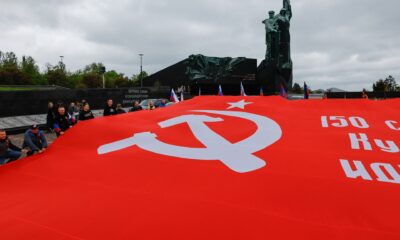
 Conflict Zones2 days ago
Conflict Zones2 days agoRussia-Ukraine war: List of key events, day 1,170 | Russia-Ukraine war News
-
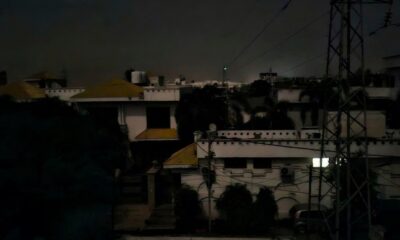
 Conflict Zones2 days ago
Conflict Zones2 days ago‘Missiles in skies’: Panic in Indian frontier cities as war clouds gather | India-Pakistan Tensions News
-
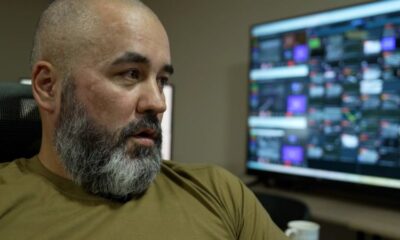
 Europe2 days ago
Europe2 days agoUkrainians on front line say Russians keep breaking Putin’s ceasefire
-
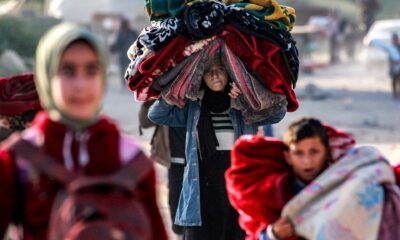
 Middle East1 day ago
Middle East1 day agoWorld could be witnessing ‘another Nakba’ in Palestine, UN committee warns | Israel-Palestine conflict News
-
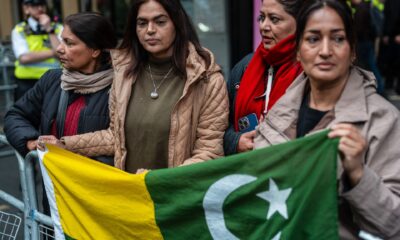
 Conflict Zones1 day ago
Conflict Zones1 day agoWho are the armed groups India accuses Pakistan of backing? | Armed Groups News
-

 Middle East1 day ago
Middle East1 day agoSyria’s Druze divided as sectarian tensions linger after violence | Syria’s War News
-
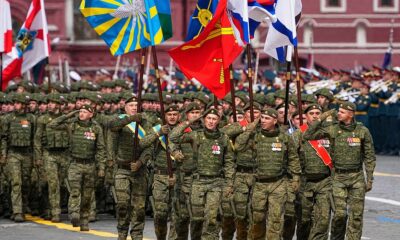
 Africa1 day ago
Africa1 day agoRussia stages massive victory day parade, Putin hails troops in Ukraine as foreign leaders attend
-
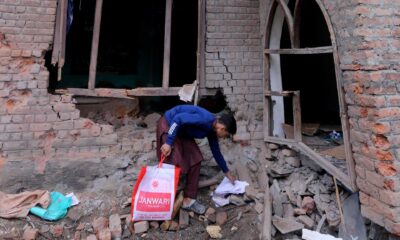
 Conflict Zones1 day ago
Conflict Zones1 day ago‘Slippery slope’: How will Pakistan strike India as tensions soar? | India-Pakistan Tensions News




